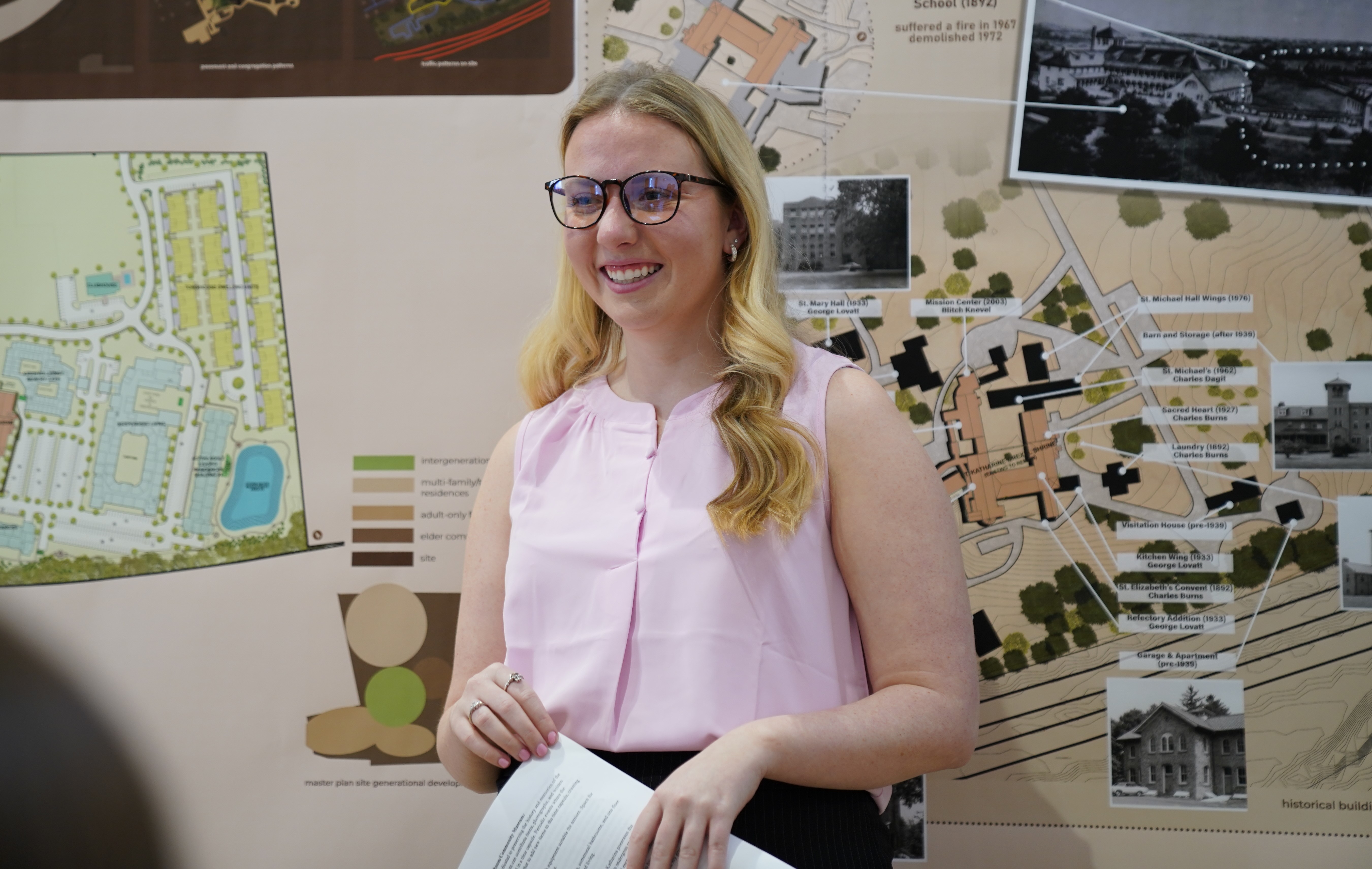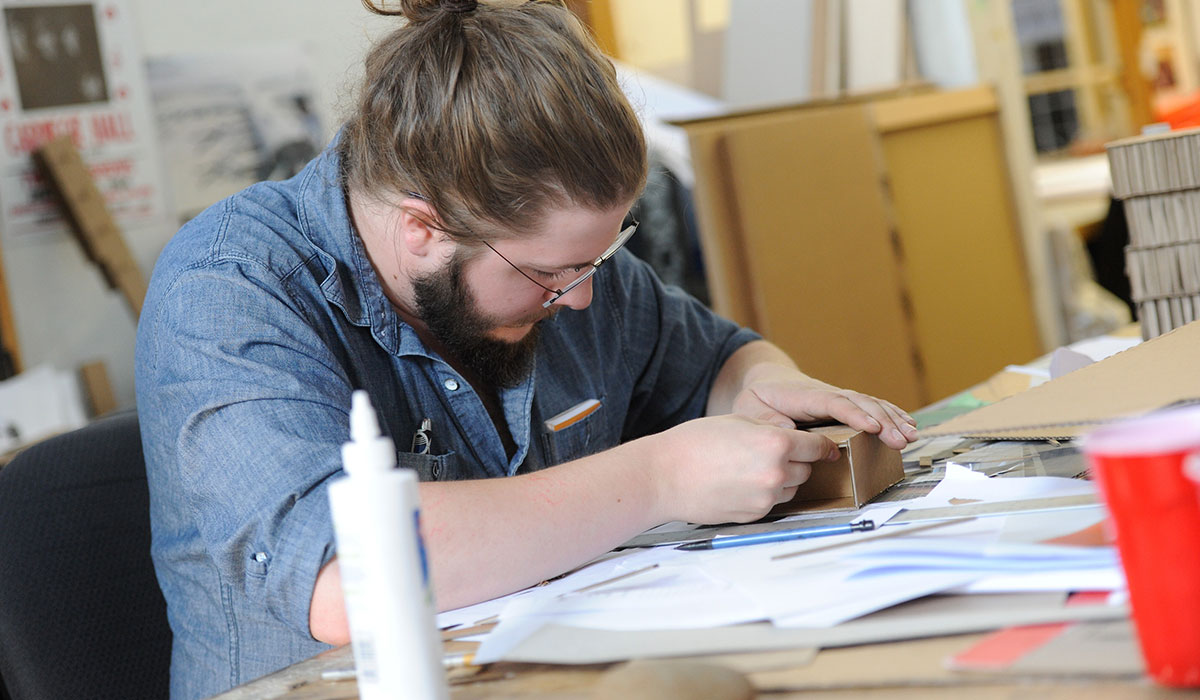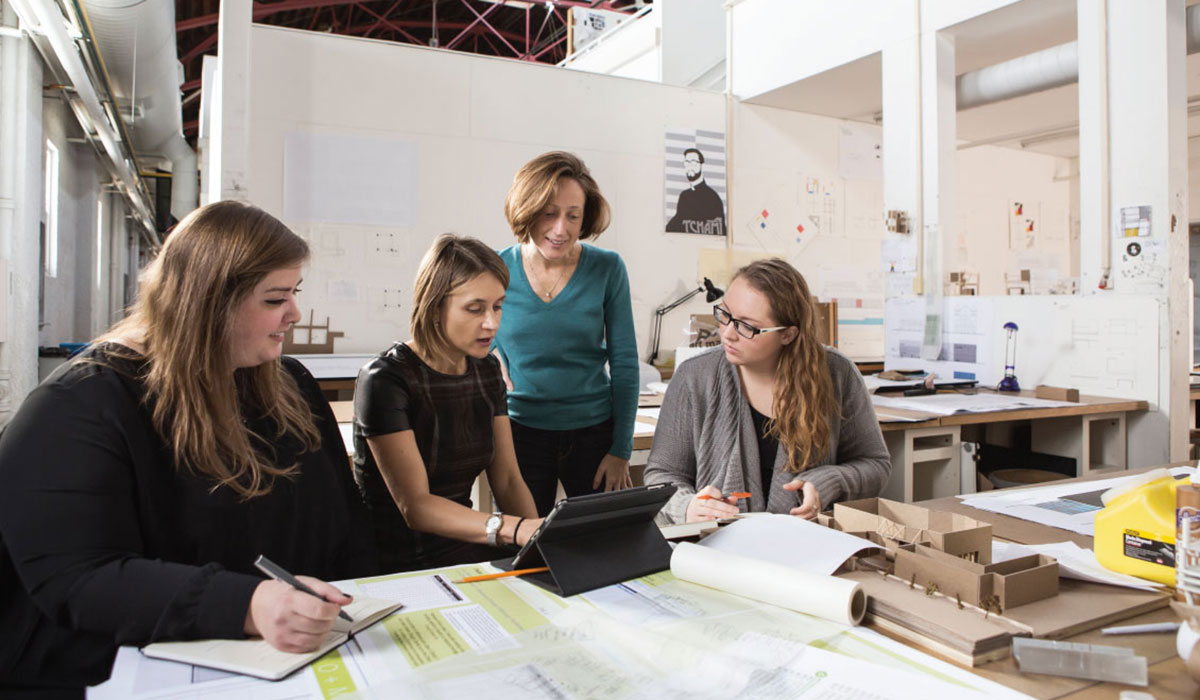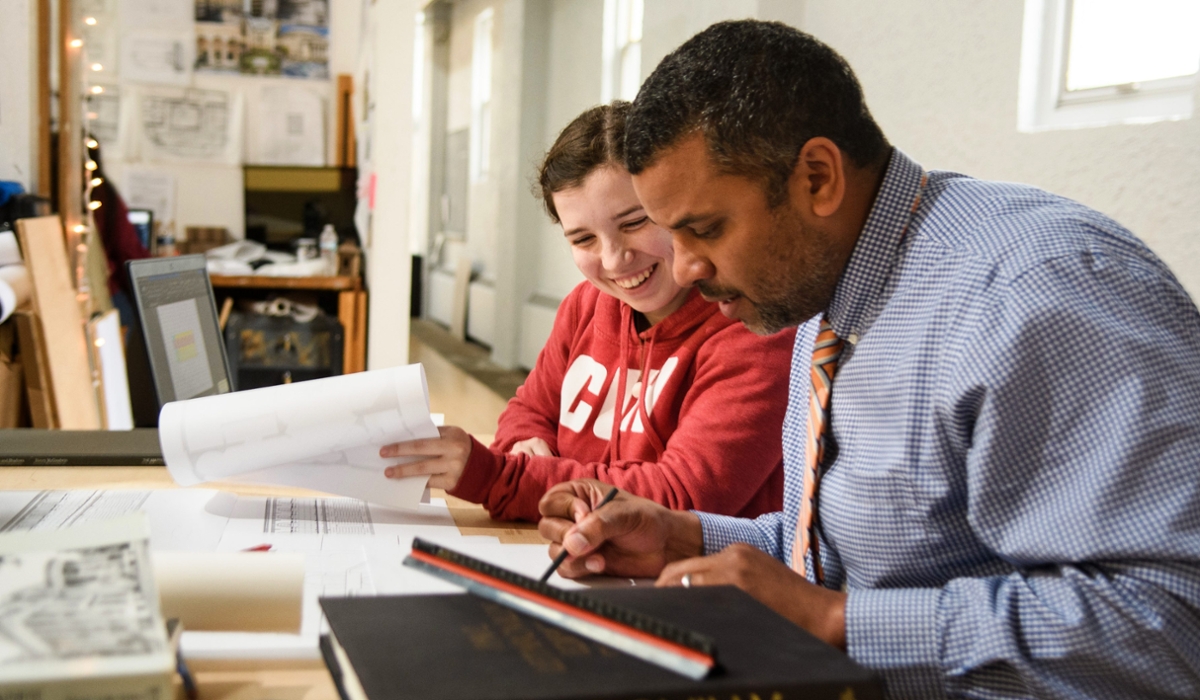Take your passion for architecture to the next level
Why Catholic University is a great choice for you
- Educating students in design and technology as applied to the built
environment. - Study in one of the first designed American cities.
- Only East Coast school with Modern and Classical Architecture.
- NAAB-accredited professional degree
Here at the School of Architecture and Allied Arts, we offer three Master of Architecture degrees, dependent on the student's baccalaureate degree. We also provide the opportunity to concurrently pursue a second Master of Science in Net Zero Design degree. All of the Master of Architecture degrees are NAAB-accredited. The accredited professional degree is a necessary first step for students interested in pursuing the path toward licensure as a practicing architect in the United States.
- Master of Architecture (2 year) program
- Master of Architecture (3 year) program
- Master of Science in Net Zero Design program
The 1.5 year Master of Architecture program is an advanced standing track designed for students who already possess an undergraduate Bachelor of Science in Architecture degree (B.S.Arch.) from Catholic University. This is a three-semester degree program leading to the NAAB-accredited M. ARCH degree (45 credit hours).
The two year Master of Architecture program is a track designed for students who already possess an undergraduate Bachelor of Science in Architecture degree (B.S.Arch.). This is a four-semester degree program leading to the NAAB-accredited M. ARCH degree (60 credit hours).
The three year Master of Architecture program is designed specifically for students who have earned a baccalaureate degree in an area other than architecture. This seven-semester program provides an introduction to the fundamentals of architectural design and representation, technologies, history, and theory, as well as professional practice. The program provides an efficient track toward the NAAB-accredited M. ARCH degree (111 credit hours).
The Master of Science in Net Zero Design is designed for students who are concurrently enrolled in a Master of Architecture program at the School of Architecture and Allied Arts. This degree requires an additional 18 credit course load on top of the main Master of Architecture degree.
Within the graduate program, the school also offers four areas of concentration for more focused specialization. Students enrolled in the Master of Architecture program pursue a concentration in one of the following four areas: Sacred Space/Cultural Studies, Technology and Media in Architecture and Interiors, Urban Practice, and Classical Architecture and Urbanism.
Curriculum and Interdisciplinary Approach
The graduate architecture and planning curriculum at The Catholic University of America offers a range of advanced programs and concentrations for students committed to becoming stewards of the social, natural, and built environment. Developed around the philosophy that successful stewardship comes from the collaboration between design professionals, policy and science experts, and members of the community, our graduate programs take an interdisciplinary approach that builds on the University’s rich heritage as a graduate and research center.
Graduate programs at the School of Architecture and Allied Arts approach architectural design as a practicing professional discipline, where critical inquiry – from the scale of the detail to the scale of the city and the region around it merges with the realities and forces within the built environment. The built environment is a mirror of the public and private goals and objectives of past and present society. The professional and post-professional programs at the School of Architecture and Planning give students the opportunity to examine architecture and its role in contemporary culture through art, science, and history while furthering their study through observation, analysis, and synthesis.
All concentrations build upon the core architecture curriculum. This prepares students to take the professional architecture license exam while providing an opportunity for specialization and customization of graduate degrees. The program's curriculum meets the licensing education requirement in all 50 states of the United States. Students conclude their studies with a capstone studio or independent thesis project, pulling together a solid foundation in architecture and personalized self-defined study.





